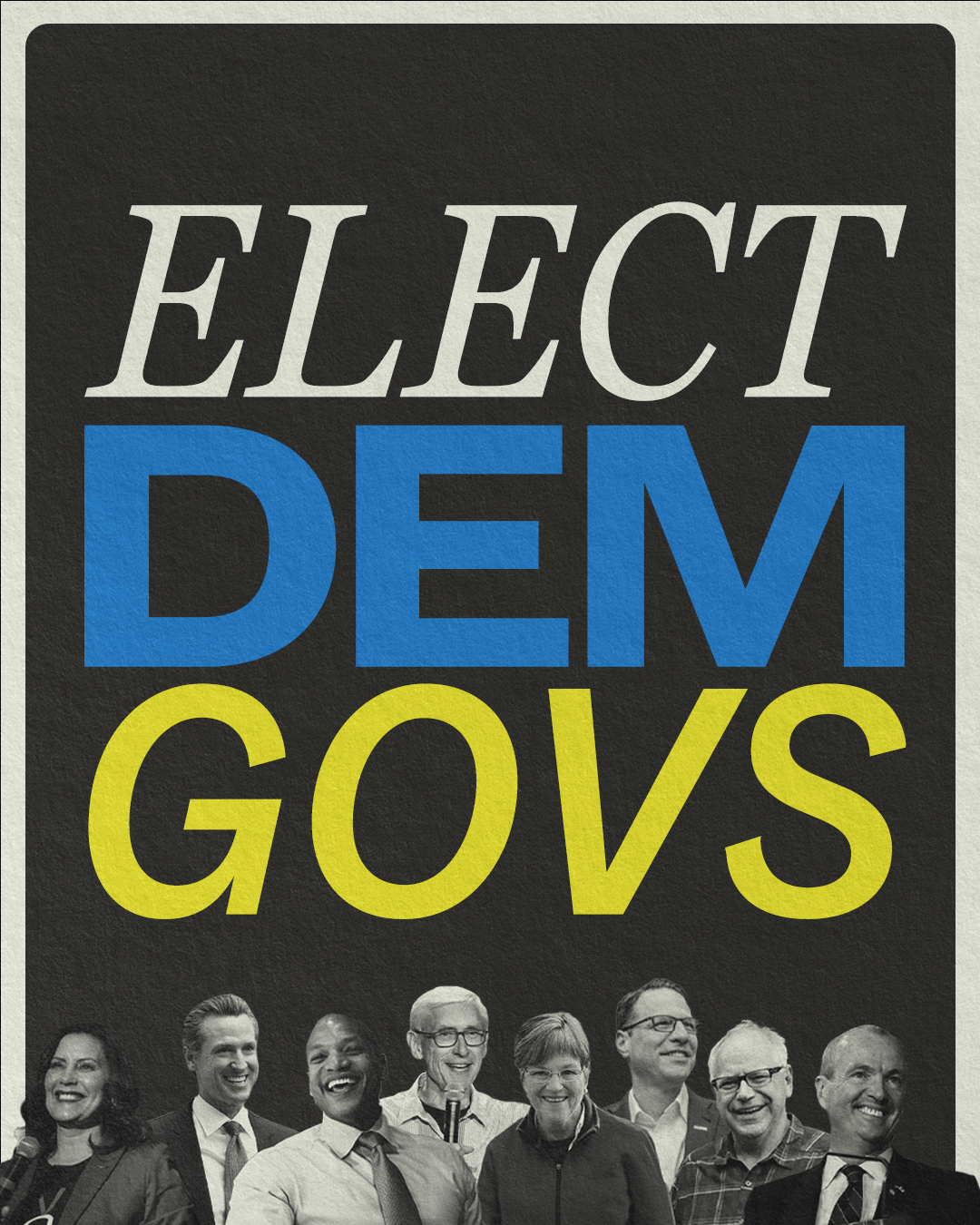Governors Reynolds and Rauner Build Friendship of Failure
Governors Meet While Their State’s Budgets Sink Under Weight of Incompetence
Today, Governor Kim Reynolds of Iowa and Governor Bruce Rauner of Illinois will meet on the Mississippi River where each can entertain the other with stories of leadership failure. As captains of their state’s fiscal ships, both governors have promoted policies that ran their budgets aground.
In Illinois, Governor Rauner has led the state to an unprecedented 730 days without a budget. The consequences have been dire. Illinois teeters on the edge of junk bond status, is racking up debt and huge interest payments that will saddle future budgets, and drastically slashed higher education funding endangering future job growth. If Governor Rauner fails to pass a budget this month, public schools and social service agencies warned they may be forced to close.
In Iowa, Governor Reynolds has endorsed policies that turned budget surpluses into budget shortfalls while dolling out tax giveaways to out-of-state corporations. Now the state is mortgaging its future by slashing education while dipping into the state’s emergency funds.
With elections looming, perhaps Governors Reynolds and Rauner will trade notes on how to defend their failed budget records to voters.
“Iowa and Illinois share more than a river: Both states have governors whose policies that wrecked budgets and hurt the economy,” said DGA Communications Director Jared Leopold. “As Rauner and Reynolds meet on the banks of the Mississippi, they can swap tales of fiscal ruin. Next November, Illinois and Iowa voters will have a chance to weigh in and replace these two failed Republican governors.”
###
Background on Iowa’s Fiscal Mess:
In 2017, State Lawmakers Cut $250 Million from the State Budget. According to the Quad City Times, “And while money coming into the state continues to increase, the state budget has fallen into disrepair. This year, state lawmakers have been forced to cut make $250 million in budget cuts, and next year’s budget figures to be tight as well.” [Quad City Times, 4/7/17]
For the Fiscal Year Starting July 1, the Reynolds Administration Dipped into a State Economic Emergency Fund for $50 Million. According to the Des Moines Register, “A steady decline in projected state revenues will force Iowa government to dip into a state economic emergency fund for $50 million, but across-the-board budget cuts will be avoided, Gov. Kim Reynolds said Tuesday.” [Des Moines Register, 6/13/17]
In 2017, Budget Cuts were Traced to Branstad and Republicans “Dramatically” Increasing “New Tax Giveaways to Out-of-State Corporations in the Last Few Years.” According to Newton Daily News, “Republican lawmakers announced last week they will slash over $117 million from the state budget in the current fiscal year. The mid-year budget cuts include an $18 million cut to Iowa’s three state universities, a $3 million reduction to community colleges, $38 million cut to Medicaid and human services and another $5.5 million cut to public safety. Why is Iowa in the position of struggling to pay its bills despite a relatively strong economy? The cuts come after Branstad and Republicans dramatically increased new tax giveaways to out-of-state corporations in the last few years. While claiming concerns about balancing the budget, Republicans have also broken their own promise by spending more money than the state takes in for the last three years in a row. A major tax cut enacted several years ago on commercial buildings and other properties has sliced hundreds of millions of dollars from the state budget. Signed into law in 2013 by Republican Gov. Terry Branstad, the largest tax cut in state history has gradually cost Iowa more than $400 million over several years. A separate $300 million will hit Iowa’s main spending fund this budget year, and that cost is slated to be permanent for the years to come. The hope that these cuts would grow the economy has not been the case.” [Newton Daily News, 1/30/17]
Background on Illinois’ Budget Disaster:
Illinois Is The Only State In The Past 80 Years To Go An Entire Year Without A Full Operating Budget. According to Reuters, “A political stalemate between Republican Governor Bruce Rauner and Democrats who control the legislature had left Illinois as the only U.S. state without a full budget for fiscal 2016, which ends at midnight. The nation’s fifth-largest state has limped through the year, relying on court-ordered spending and ongoing and stopgap appropriations to operate in the wake of the impasse. Illinois is the only state in the past 80 years to go an entire year without a full operating budget.” [Reuters, 7/1/16]
Chicago Tribune’s Eric Zorn: “Illinois’ Insane Credit-Rating Slide Is Accelerating Under Rauner. “One of the metrics that candidate Bruce Rauner used in 2014 when he was running for governor against incumbent Pat Quinn was the state’s alarming slide in bond ratings during Quinn’s administration. The three major credit-ratings agencies — Standard & Poor’s Global Ratings, Fitch Ratings and Moody’s Investors Service — had dropped Illinois’ rating a net 12 times since Quinn took the oath of office in 2009. More proof, Rauner said, that Quinn was a ‘failure.’ But the slide has continued under Rauner. When Moody’s and S&P both downgraded Illinois on Thursday, it marked the eighth such move during Rauner’s term. Not just continued, but accelerated. Quinn served for just under six years, meaning he averaged one credit downgrade per 181 days in office. Rauner was sworn in a little more than 28 months ago is averaging one credit downgrade every 109 days in office.” [Chicago Tribune, Eric Zorn, 6/2/17]
In June 2016 the Editorial Board of Crain’s Chicago Business Argued “By Nearly Every Measure, the State is Worse Off Since Rauner Took Office” Highlighting Pension Liabilities, Unpaid Bills, Cut Social Services, and the State’s Poor Credit Rating. According to the Editorial Board of Crain’s Chicago Business, “But Madigan is not the governor. Rauner is. And there’s no way to deny it: By nearly every measure, the state is worse off since Rauner took office. Pension liabilities now top $110 billion and are rising by the minute. The stack of unpaid bills is ballooning, turning Illinois into a notorious deadbeat. Vital social service agencies are being cut. Students are abandoning the state’s universities. Illinois’ credit rating hovers just above junk-bond range. We’re in Year Two without a budget—and the best hope for one is months away, after the Nov. 8 election. In short, Illinois needs fixing more than ever. No matter how beneficial Rauner’s idea of reform might be for the state’s economy long term, what he’s doing to get there is not working.” [Crain’s Chicago Business editorial, 6/25/16]


